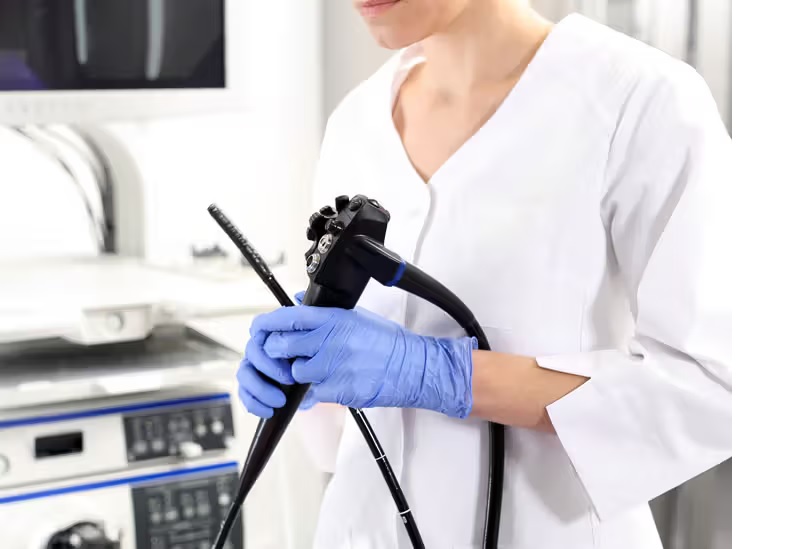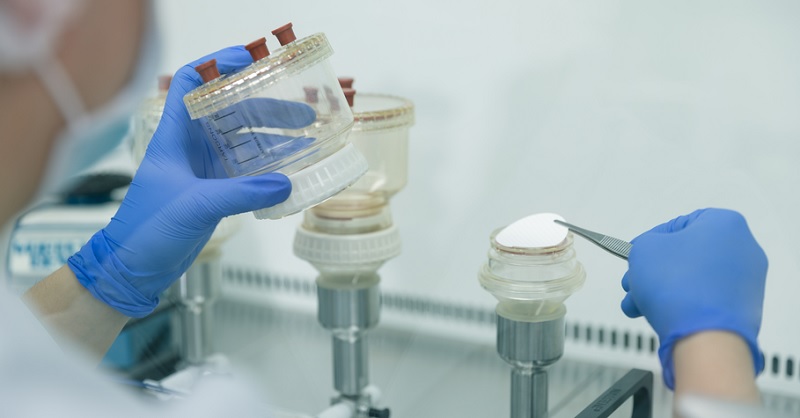Colonoscopy is a crucial medical procedure for the early detection and prevention of colorectal conditions. Despite its significance, many patients find the idea of a colonoscopy intimidating or unfamiliar. This comprehensive guide aims to demystify colonoscopy, providing patients with a clear understanding of the procedure, its importance, and what to expect.
Understanding Colonoscopy: An Overview
Colonoscopy is a medical procedure that allows a gastroenterologist to examine the interior lining of the colon and rectum using a long, flexible tube called a colonoscope. Fitted with a camera and a light source, the colonoscope transmits real-time images to a monitor, enabling the doctor to identify abnormalities, such as polyps or signs of colorectal cancer.
Importance of Colonoscopy
Colonoscopy is a vital tool for the early detection of colorectal conditions, including colorectal cancer. Detecting and removing precancerous polyps during the procedure can significantly reduce the risk of developing colorectal cancer.
Screening Recommendations
Health authorities, including the American Cancer Society and the U.S. Preventive Services Task Force, recommend regular colonoscopies for individuals aged 50 and older. However, those with a family history of colorectal conditions may need to start screenings earlier.
Preparing for a Colonoscopy: What to Expect
The preparation for a colonoscopy is a crucial aspect that patients should understand to ensure a successful and accurate examination.
Dietary Restrictions
Several days before the colonoscopy, patients are typically instructed to follow a low-fiber diet and avoid certain foods, such as nuts and seeds. On the day before the procedure, a clear liquid diet is usually required.
Bowel Preparation
One of the most critical aspects of preparing for a colonoscopy is bowel preparation. Patients are prescribed a laxative solution to cleanse the colon thoroughly. It’s essential to follow the instructions provided by the healthcare provider for effective preparation.
Fasting Period
Patients are usually required to fast for a specific period before the colonoscopy, ensuring that the digestive tract is clear for optimal visualization during the procedure.
What Happens During a Colonoscopy
Understanding the step-by-step process of a colonoscopy helps alleviate anxiety and provides patients with a sense of what to expect on the day of the procedure.
Patient Positioning
Patients are positioned on their left side, and the colonoscope is gently inserted through the rectum and guided through the colon. The entire procedure is conducted while the patient is under sedation, ensuring comfort throughout.
Visual Examination
As the colonoscope advances, the camera transmits images to a monitor. The gastroenterologist carefully examines the lining of the colon, looking for abnormalities such as polyps or signs of inflammation.
Biopsy and Polyp Removal
If abnormalities are detected, the gastroenterologist may perform a biopsy or remove polyps during the colonoscopy. These samples are sent to a laboratory for further analysis.
Recovery and Post-Colonoscopy Care
The recovery process after a colonoscopy is relatively straightforward, and patients are typically monitored until the effects of sedation wear off.
Post-Procedure Monitoring
Patients may experience mild bloating or gas after the colonoscopy, but this discomfort is temporary. The medical staff will monitor patients until they are fully awake and alert.
Resuming Normal Activities
Most patients can resume their normal activities after the colonoscopy. However, it’s advisable to have someone accompany them home, especially if sedation was administered.
Post-Procedure Instructions
Patients receive specific post-procedure instructions from their healthcare provider, which may include dietary recommendations and guidance on any medications to be resumed.
Addressing Common Concerns and Misconceptions
Patients often have concerns and misconceptions about colonoscopies that can contribute to anxiety about the procedure. Addressing these common worries can help patients approach the experience with greater ease.
Sedation Concerns
Patients may worry about being fully conscious during the procedure. However, the sedation used ensures that individuals are in a relaxed state, often with no memory of the procedure.
Discomfort or Pain
Patients might fear experiencing pain during or after the colonoscopy. In reality, the procedure is not painful, and any discomfort is typically minimal and short-lived.
Embarrassment
Feeling embarrassed about the nature of the procedure is a common concern. It’s crucial to remember that gastroenterologists and their staff are trained professionals who prioritize patient comfort and dignity.
Taking Charge of Your Colorectal Health
Demystifying colonoscopy is essential for patients to recognize its importance in preventing and detecting colorectal conditions. By understanding the procedure, preparing adequately, and addressing common concerns, individuals can approach colonoscopies with confidence. Regular screenings are a proactive step in maintaining colorectal health and preventing the progression of potential issues.




